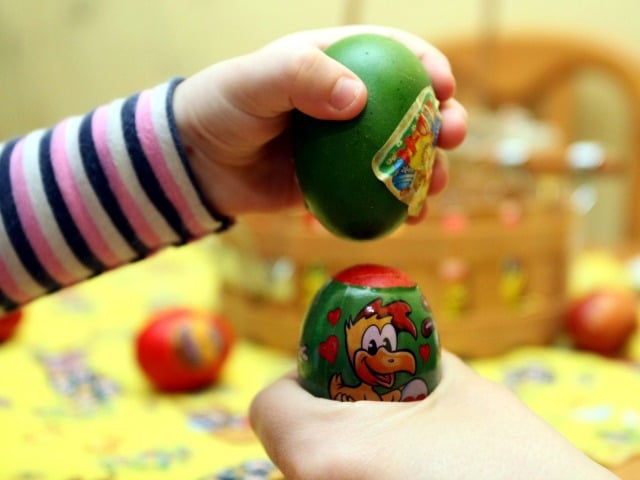
Easter, a time of rebirth and renewal, is a wonderful occasion to celebrate with family and friends. And what better way to embrace the spirit of Easter than by organizing a fun-filled Easter egg hunt? Whether you’re a seasoned event planner or a first-time organizer, this comprehensive guide will walk you through the steps to create a memorable and successful Easter egg hunt for all ages.
1. Define Your Objectives
Before you dive into the details, take a moment to define the objectives of your Easter egg hunt. Is it a small family gathering or a community-wide event? Understanding your goals will help you plan effectively and allocate resources accordingly.
2. Choose a Date and Location
Selecting the right date and location is crucial for your Easter egg hunt’s success. Consider the weather, availability of your target audience, and accessibility of the location. A local park, community center, or your own backyard can all be great options.
3. Set a Budget
Creating a budget will help you manage expenses and ensure that your Easter egg hunt stays within financial limits. Factor in costs such as decorations, eggs, prizes, and any permits you might need for your chosen location.
4. Plan Your Easter Egg Hunt
a. Age Groups
Segment your participants into different age groups to ensure a fair and enjoyable experience for all. Consider having categories for toddlers, children, and even adults if you’re planning a multi-generational event.
b. Egg Hunt Rules
Establish clear and simple rules for your egg hunt, including start times, boundaries, and what participants should do when they find an egg. Make sure these rules are communicated to all attendees.
c. Egg Distribution
Decide how you’ll distribute the eggs. Will you scatter them across a field, hide them in bushes, or set up designated areas for different age groups? Be sure to keep track of the number of eggs hidden.
d. Prizes
Prizes add excitement to the event. Consider giving out small gifts or treats to the participants who find special eggs or have the most eggs in their baskets. Be mindful of age-appropriate prizes.
5. Gather Supplies
Now that you have a plan, gather the supplies you’ll need for your Easter egg hunt:
- Easter Eggs: Purchase or prepare enough plastic eggs to fill with treats and surprises.
- Treats and Prizes: Stock up on candies, chocolates, small toys, and other goodies to put inside the eggs.
- Baskets or Bags: Provide containers for participants to collect their eggs. You can encourage creativity by letting them decorate their baskets.
- Decorations: Add festive touches with Easter-themed decorations like bunny banners, pastel-colored streamers, and spring flowers.
- Markers and Signs: Use markers and signs to clearly mark boundaries and areas designated for different age groups.
6. Promotion and Registration
Spread the word about your Easter egg hunt through social media, local newspapers, community boards, and word of mouth. If necessary, set up a registration process to estimate attendance and plan accordingly.
7. Safety First
Safety is paramount when organizing any event, especially one involving children. Ensure that your event is safe by taking the following precautions:
- Supervision: Assign responsible adults to supervise different areas of the egg hunt.
- Allergen Awareness: Ask parents if their children have allergies and avoid using treats that could trigger allergic reactions.
- First Aid: Have a first aid kit on hand in case of minor injuries.
- Emergency Plan: Prepare for unexpected situations by having an emergency plan in place.
8. Easter Bunny Appearance
Consider adding an extra layer of fun by arranging for the Easter Bunny to make an appearance. This beloved character can take photos with attendees, hand out treats, and create lasting memories.
9. Music and Entertainment
Set the mood with background music, and consider incorporating entertainment such as face painting, balloon animals, or a magician to keep everyone engaged between egg hunts.

10. Volunteers and Helpers
Recruit volunteers to help with various aspects of your event, from egg hiding and supervision to registration and clean-up. Make sure everyone knows their roles and responsibilities in advance.
11. Capture the Moments
Designate a photographer or encourage attendees to take photos and share them on social media. Documenting the event will not only create lasting memories but also promote future egg hunts.
12. Post-Event Activities
To extend the celebration, consider organizing post-event activities like a picnic or a craft station where kids can decorate their eggs or create Easter-themed crafts. If you found this article interesting about the easter egg hunt planning guide, it is very likely you will enjoy further reading at BibleKeeper.com.
13. Gratitude and Feedback
Show appreciation to your volunteers and sponsors by sending thank-you notes. Also, gather feedback from participants to learn what went well and what could be improved for future events.
14. Plan Ahead for Next Year
Once the event is over, take some time to reflect on the Easter egg hunt’s success and what you’d like to do differently next year. Keep notes and records to help you plan an even better event in the future.
In conclusion, planning a successful Easter egg hunt involves careful preparation, attention to detail, and a focus on safety. With the right objectives, a well-thought-out plan, and a team of dedicated volunteers, you can create an Easter event that brings joy and laughter to participants of all ages. Happy hunting!
